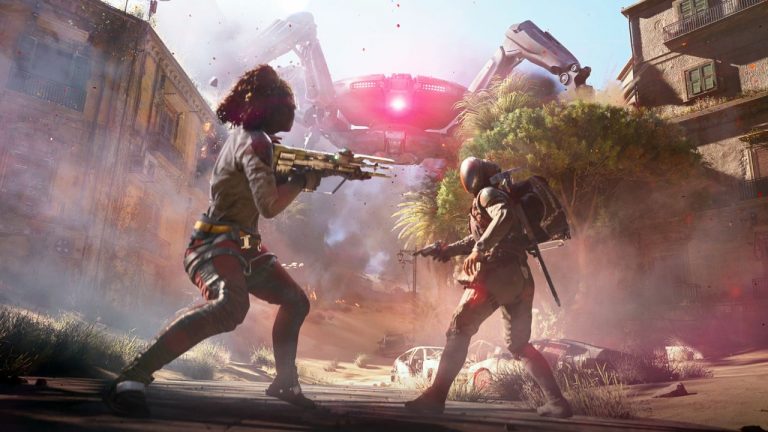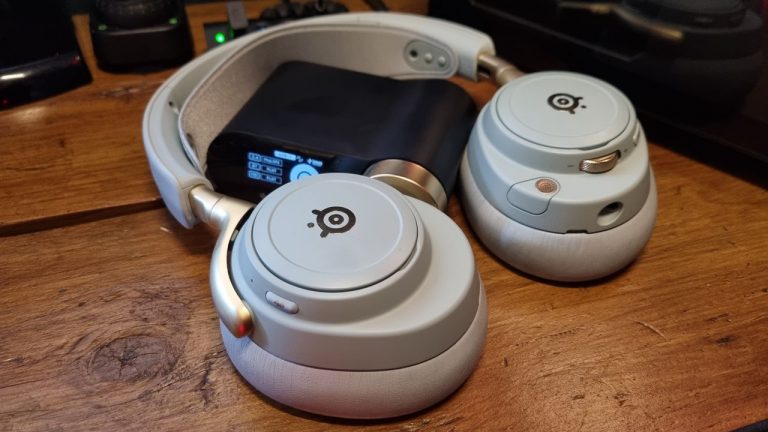(Image credit: Future)
Check out more of the year’s best tech in our PC Gamer Hardware Awards 2024 coverage.
Even though there haven’t been any major advances in solid state storage this year, it’s still been a great 12 months for SSDs. The days of the market being dominated by just one vendor are long gone and the fierce competition, especially from newer companies, has meant getting a fast, spacious SSD has never been easier.
The rise of handheld gaming PCs has meant that 2230 form factor drives have been in high demand, with gamers wanting lots of space for games but without sacrificing performance. Lexar met that challenge head-on with its Play 2230 model and it’s by far the best way to improve the storage of your Steam Deck.
Most other handhelds sport at least one fast USB Type-C port, which offers another way of adding more game space to your device, without having to prise the back off. Adata’s SD810 is simple, robust, and as speedy as you’re going to get for a USB drive.
Of course, traditional M.2 SSDs weren’t ignored and over the year, we began to realise that 1 TB drives were rapidly giving way to 2 TB and larger SSDs. So much so, that 4 TB drives are far more affordable than they were just a few years ago and Team Group’s MP44 is a great example of such a drive: masses of storage, great performance, and a tempting price to boot.
Those are the models that we’ve nominated for gaming SSD of 2024 but you’ll have to wait until New Year’s Eve to see which one is the winner!
Best gaming SSD 2024: the nominees
Team Group MP44 4 TB
There are faster SSDs and there are cheaper SSDs, but very few match the Team Group MP44 when it comes to the magic trinity of storage, performance, and price. That’s especially true of the 4 TB version, which impressed us with its no-frills, no-spills, all-great credentials.
You could easily use the MP44 as the single drive in a gaming PC for the operating system, apps, and games, but it’s best suited as a secondary drive, used to host your Steam library. That’s because having it in this singular role makes it easy to transfer the library to another PC.
With a solid read/write performance that holds up over sustained use, the MP44 is more than fast enough for any gaming PC and even a PlayStation 5, though you’ll want a heatsink-equipped version for that role.
Read our full Team Group MP44 4 TB review.
Lexar Play 2230 1 TB
2230-size SSDs are less than half the length of a typical M.2 drive (the 30 part of its name refers to its 30 mm length) but you’re not losing anything in terms of performance or space by going small.
That makes the Lexar Play 2230 an ideal fit for slinky laptops and handheld gaming PCs, but while it’s small in size, it’s not small in capacity or performance. Lexar makes the highly-rated NM790 so it’s no surprise that the Play 2230 is just as good.
In fact, it’s so good, that it makes other SSD models look pretty poor in comparison. Sadly, you can’t have it all and the largest version available is only 1 TB in size. That’s absolutely fine for a handheld gaming PC but you wouldn’t really want to use it in a desktop rig.
Read our full Lexar Play 2230 1 TB review.
Adata SD810 1 TB
Portable SSDs are rubbish, yes? Not in the least bit or rather, certainly not the Adata SD810. It’s very compact and topped off with a handy flip-lid to prevent dirt and crumbs from clogging up the USB port.
While it can’t beat a Gen4 M.2 SSD for performance, as long as you hook up the SD810 to a fast USB port (at least USB 3.2 Gen 2×2), you’ll enjoy a consistent 1,700 to 2,000 MB/s write and read speed. That’s plenty enough to use as a game library drive.
We tested the 1 TB version but if that’s not enough storage, Adata offers 2 and 4 TB variants. It’s rather dinky so if you do go all-out on capacity, you may not want to store really vital stuff on it, just in case you misplace it.
Read our full Adata SD810 1 TB review.
The winner of the PC Gamer Hardware Award for the best gaming SSD on New Year’s Eve. Three very different drives but which one will grab the 2024 crown?












